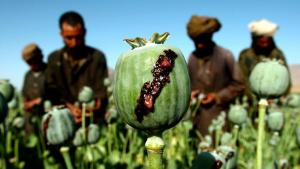China’s latest five-year plan makes a thrust towards connecting Afghanistan with emerging Central Asian Rail System. Trains would leave Kashgar in China for Herat in Afghanistan and then join Iran after crossing Kyrgyzstan and Tajikistan. Why invest in a drug-infested, war-torn, impoverished country?
The CIA World Factbook describes Afghanistan as the most impoverished country in the world. It has no deposits. Its timber riches are long gone. Yet Chinese banks are loosening purse even as China’s economy slows down. Why lend to a country which really can’t pay?
It’s so because China is pursuing a political, and not financial, purpose. It’s One Belt One Road (OBOR) programme—“The New Silk Road”–is building railroads in Indonesia, Thailand, Afghanistan, Eastern Europe and much of continental Eurasia.
It’s in China’s interest to see a stable Afghanistan. Illegal drugs and terrorists are causing unrest and killings on China’s Islamic regions. China dreads the day of a Paris and Brussels attack take place on its homeland. Better opportunity could reduce dependence on heroin or resorting to terrorism.
Contrast this with United States. Everyday, 78 people in the United States die with heroin overdose. Their presence in Afghanistan, and the fact that the latter produces 90% of world’s heroin, and despite “War on Terror” extremists have only grown is a connection enough. Drugs in Afghanistan only gained currency after 1979 when US made a pact with Saudi Arabia with willing help from Pakistan’s secret police, ISI. Drugs and terrorism was the gift to the world.
West’s against any principle of independence and sovereignty, despite shouting “freedom of speech,” “equality” etc from the rooftop. Talibans wanted oil pipelines instead of drugs; Saddam Hussein had an independent state-run oil company in Iraq; Libya’s welfare system was an envy of the world; Syria was one of the most stable country in the Middle East—yet we all know their present fate.
Another instance. The world is racked by terrorism and ISIS. The chief force fighting it on the ground are Syrian army. Yet US and West would like anyone but Assad in charge, never mind if ISIS and al-Qaeda gets stronger. And what happens to those who take on ISIS? They are slapped with economic sanctions such as Russia and Iran.
Impoverished nations leave Wall Street and London Stock Exchange in control of their destiny. If countries develop, it would mean less reliance on West. And be-woe if the development shows China’s hands.
Let’s look at history. The two “Opium Wars” gave British empire and others control of China in the 19th century. It’s called Opium Wars because Britain and others had interest in China’s narcotics.
In 1899, US stepped into China militarily to put down the Boxer Rebellion. Chinese nationalists called “boxers” began to attack symbols of Christianity. They also confiscated opium pipes and lynched drug dealers. United States Marine Corps came in to ensure China remained the “Sick Man of Asia.”
The New Silk Road Vision and the “One Belt, One Road” policy is a reflection of the lessons China learnt over the course of the 20th century. US, with its culture of profits, is seeing a rise in crime, homelessness and loss of civil liberties. The US military is all over the world. Hunger rises amidst agricultural surplus. The media circus does its bit.
With such looming troubles, it’s time US start learning from China’s alternative vision.
(This is an abridged version of Caleb Maupin’s piece in New Eastern Outlook).


